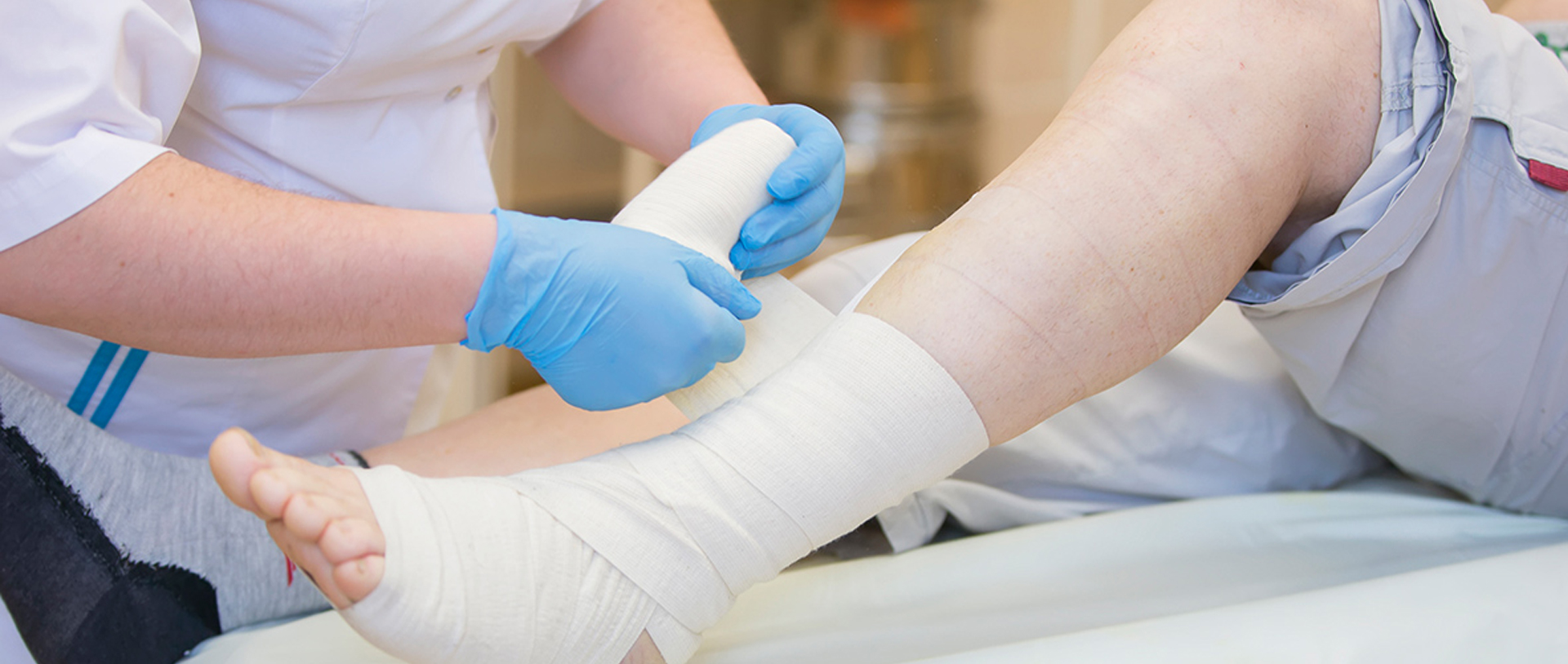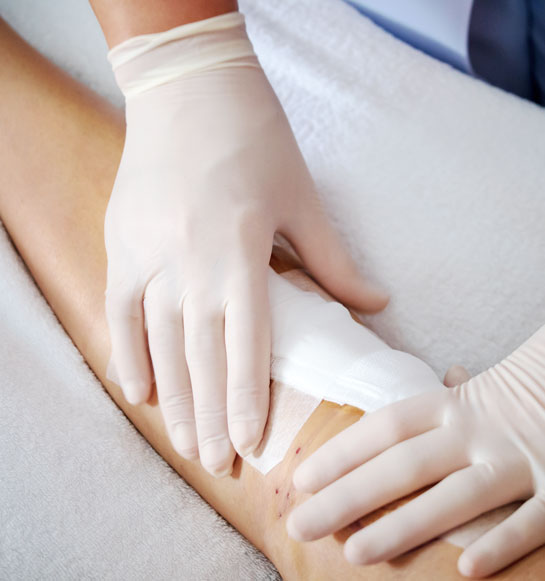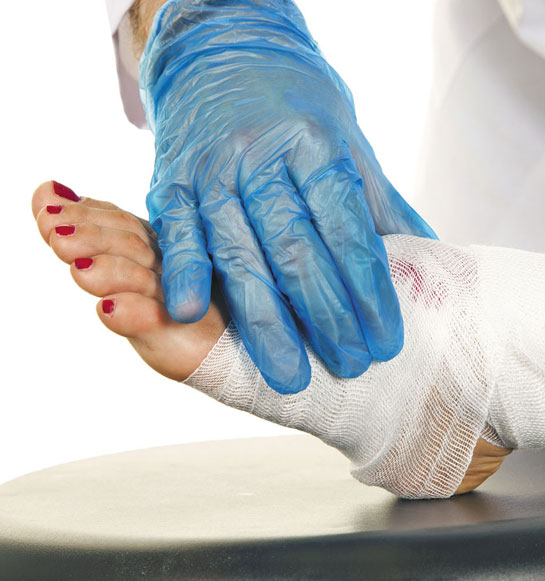
Non healing wounds
Plastic surgeons can play a role in the treatment of non-healing wounds, particularly those that are complex, chronic, or difficult to manage.
plastic surgeons may utilize for non-healing wound treatment:
Wound Assessment and Management: Plastic surgeons will carefully evaluate the wound, considering factors such as the size, depth, location, and underlying causes. They may perform diagnostic tests or imaging studies to gather more information about the wound and any underlying conditions affecting healing. The surgeon will then develop a comprehensive wound management plan, which may include debridement (removal of dead or unhealthy tissue), wound cleansing, and the use of specialized dressings or wound care products to promote healing.
Tissue Reconstruction: In cases where non-healing wounds have significant tissue loss or require reconstruction, plastic surgeons may perform various surgical techniques. These can include local flaps, regional flaps, or free tissue transfer procedures to bring healthy tissue to the wound site, improve blood supply, and promote healing. These techniques are especially beneficial for large or complex wounds that cannot heal through natural wound healing processes alone.
Skin Grafting: Plastic surgeons may also utilize skin grafting techniques to address non-healing wounds. This involves transplanting healthy skin from one area of the body (donor site) to cover the wound (recipient site). Skin grafts can provide a stable coverage, promote wound healing, and facilitate tissue regeneration. The choice of graft type (full-thickness or split-thickness) depends on the specific wound characteristics and patient factors.
Advanced Wound Therapies: Plastic surgeons may employ advanced wound healing therapies such as negative pressure wound therapy (NPWT), hyperbaric oxygen therapy (HBOT), or bioengineered skin substitutes. These treatments can help enhance wound healing, provide optimal wound environment, and improve outcomes for non-healing wounds.
Multidisciplinary Collaboration: Plastic surgeons often work in collaboration with other healthcare professionals, including wound care nurses, vascular surgeons, infectious disease specialists, and nutritionists, to develop a comprehensive approach to non-healing wound management. This multidisciplinary approach ensures that all aspects of the wound, including underlying factors impacting healing, are addressed.
It’s important to note that the specific treatment plan for non-healing wounds will depend on the individual patient’s condition, the underlying causes, and the characteristics of the wound itself. Plastic surgeons with expertise in wound management and reconstruction can assess the specific case, recommend the most appropriate treatment options, and provide ongoing care to promote wound healing and improve the patient’s quality of life.
If you or someone you know is dealing with a non-healing wound, I recommend consulting with a qualified plastic surgeon who specializes in wound care. They can evaluate the wound, discuss the available treatment options, and develop a personalized plan to address the underlying causes and promote healing.


Non healing wounds – Frequently Asked Questions
What are non-healing wounds?
Non-healing wounds are wounds that do not progress through the normal stages of healing within the expected timeframe. These wounds may remain open, fail to close, or show signs of stalled healing despite appropriate wound care.
What causes non-healing wounds?
Non-healing wounds can have various underlying causes. Some common factors include poor blood circulation, underlying medical conditions (such as diabetes or vascular diseases), infection, chronic inflammation, impaired immune function, inadequate nutrition, medication side effects, repeated trauma, or previous radiation therapy.
When should I seek help from a plastic surgeon for a non-healing wound?
If you have a wound that has not shown signs of healing within a reasonable timeframe or if you are experiencing complications such as infection, increasing pain, foul odor, or spreading redness, it is advisable to seek consultation with a plastic surgeon or wound care specialist. They can evaluate the wound, identify the underlying cause, and recommend appropriate treatment options.
What is the role of a plastic surgeon in treating non-healing wounds?
Plastic surgeons have expertise in the management of complex wounds, including non-healing wounds. They can assess the wound, identify contributing factors, and develop a comprehensive treatment plan. This may involve debridement of dead or infected tissue, wound dressings, specialized wound care techniques, skin grafting, flap reconstruction, or other surgical interventions to promote healing and closure.
How are non-healing wounds diagnosed?
Diagnosing the underlying cause of a non-healing wound typically involves a thorough medical history review, physical examination, and sometimes additional tests. The plastic surgeon may order blood tests, imaging studies, or tissue cultures to assess blood flow, infection, or other factors that may be impeding the healing process.
What are the treatment options for non-healing wounds?
Treatment options for non-healing wounds vary depending on the specific cause and characteristics of the wound. Plastic surgeons may employ various approaches such as wound debridement, wound dressings (including advanced dressings or bioactive materials), negative pressure wound therapy, growth factor therapies, hyperbaric oxygen therapy, or surgical interventions such as skin grafts, tissue flaps, or reconstructive procedures.
How long does it take to heal a non-healing wound?
The healing time for non-healing wounds can vary significantly depending on the underlying cause, the size and depth of the wound, and individual factors such as overall health and adherence to treatment. Some non-healing wounds may take weeks to months to heal completely, while others may require ongoing management to control symptoms and prevent complications.
Can non-healing wounds be prevented?
While it may not be possible to prevent all non-healing wounds, certain measures can help reduce the risk. This includes managing underlying health conditions, maintaining good nutrition, avoiding prolonged pressure or trauma to vulnerable areas, practicing proper wound care, and seeking prompt medical attention for any wounds that are not progressing as expected.
